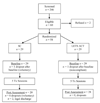Examining the effect of the Life Enhancement Treatment for Substance Use (LETS ACT) on residential substance abuse treatment retention
- PMID: 21310539
- PMCID: PMC3070865
- DOI: 10.1016/j.addbeh.2011.01.016
Examining the effect of the Life Enhancement Treatment for Substance Use (LETS ACT) on residential substance abuse treatment retention
Abstract
Effective, parsimonious behavioral interventions that target reinforcement are needed for substance users with depression to improve mood as well as treatment retention. The Life Enhancement Treatment for Substance Use (LETS ACT; Daughters et al., 2008) is a behavioral activation-based approach tailored to increase levels of positive reinforcement among depressed substance users while in substance abuse treatment. The current study tested the efficacy of LETS ACT compared to a contact-time matched control condition, supportive counseling (SC), examining effects on depressed mood, substance abuse treatment retention, and behavioral activation outcomes. Fifty-eight adult substance users in residential substance abuse treatment presenting with depressive symptoms (BDI≥12) were randomly assigned to LETS ACT or SC. Assessments were administered at pre- and post-treatment and included assessment of DSM-IV psychiatric diagnoses, depression severity, treatment motivation, overall activation, environmental reward, and substance abuse treatment retention. Patients in LETS ACT had significantly higher rates of substance abuse treatment retention and significantly greater increases in activation on the Behavioral Activation for Depression Scale (BADS) compared to those in SC. Both groups had decreased depression severity at post-treatment, although the group by time interaction was not significant. This study was the first to compare LETS ACT to a contact-time matched control treatment to evaluate effects on substance abuse treatment retention and two distinct measures of behavioral activation: overall activation and environmental reward. Findings suggest preliminary support for the feasibility, tolerability, and efficacy of a brief behavioral activation-based protocol that may be particularly useful to improve substance abuse treatment retention.
Published by Elsevier Ltd.
Figures
References
-
- Alterman AI, McLellan AT, Shifman RB. Do substance abuse patients with more psychopathology receive more treatment? Journal of Nervous and Mental Disease. 1993;181:576–582. - PubMed
-
- Armento ME, Hopko DR. The Environmental Reward Observation Scale (EROS): development, validity, and reliability. Behavior Therapy. 2007;38:107–119. - PubMed
-
- Azrin NH, McMahon P, Donohue B, Besalel VA, Lapinski KJ, Kogan ES, Acierno RE, Galloway E. Behavior therapy of drug abuse: A controlled outcome study. Behaviour Research and Therapy. 1994;32:857–866. - PubMed
-
- Beck AT, Steer RA, Ball R, Ranieri WF. Comparison of Beck Depression Inventories-IA and -II in psychiatric outpatients. Journal of Personality Assessment. 1996;67(3):588–597. - PubMed
-
- Bellg AJ, Borelli B, Resnick B, Hetcht J, Minicucci DS, Ory M, Ogedegbe G, Orwig D, Ernst D, Czajkowski S. Enhancing treatment fidelity in health behavior change studies: Best practices and recommendations from the NIH Behavior Change Consortium. Health Psychology. 2004;23(5):443–451. - PubMed


